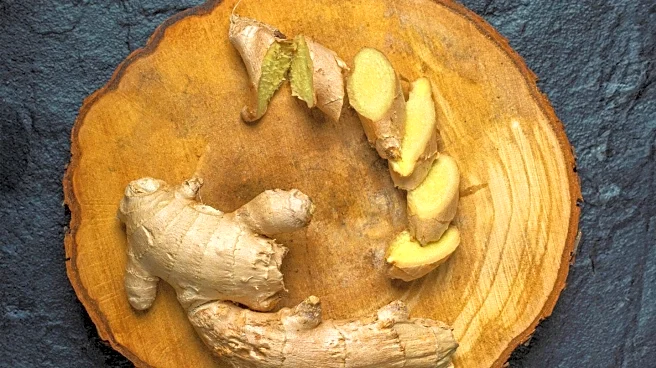What is the story about?
What's Happening?
Recent research has significantly altered the understanding of Neanderthal dietary habits, challenging the long-held view of them as primarily carnivorous. Studies, including a notable publication in Nature, have revealed that Neanderthals consumed a varied diet influenced by their environment. Evidence from dental plaque and archaeological sites indicates that Neanderthals ate not only large prey like woolly rhinoceroses and mammoths but also seafood, plants, fungi, and occasionally engaged in cannibalism. The dietary diversity was shaped by geographical and climatic conditions, with northern Neanderthals consuming more animal protein, while those in southern Europe had a plant-heavy diet. Coastal Neanderthals included shellfish and deep-sea creatures in their meals, showcasing advanced foraging strategies.
Why It's Important?
This new understanding of Neanderthal diets has implications for modern interpretations of the 'paleo diet,' which often emphasizes meat consumption while excluding grains and processed foods. The findings suggest that Neanderthals were dietary opportunists, adapting their food intake to available resources, which challenges the notion of a single 'natural' human diet. Additionally, the evidence of medicinal plant use hints at a sophisticated understanding of natural remedies, indicating that Neanderthals were not just survival-driven but also capable of complex thought and adaptation. This research contributes to a broader understanding of human evolution and dietary flexibility.
What's Next?
Further research into Neanderthal diets could explore the cultural and social aspects of their eating habits, particularly the role of cannibalism. Scientists may continue to investigate the extent of Neanderthals' knowledge of medicinal plants and their use of natural remedies. These studies could provide deeper insights into the cognitive abilities and social structures of Neanderthals, potentially reshaping perceptions of their lifestyle and survival strategies.
Beyond the Headlines
The discovery of Neanderthals' diverse diet raises ethical and cultural questions about the portrayal of ancient human species. It challenges stereotypes and encourages a reevaluation of their capabilities and adaptability. The evidence of cannibalism, whether for survival or ritualistic purposes, suggests a complex social structure that warrants further exploration. Understanding Neanderthals' dietary habits also offers a window into the ecological dynamics of prehistoric times, highlighting the interplay between environment and human evolution.















